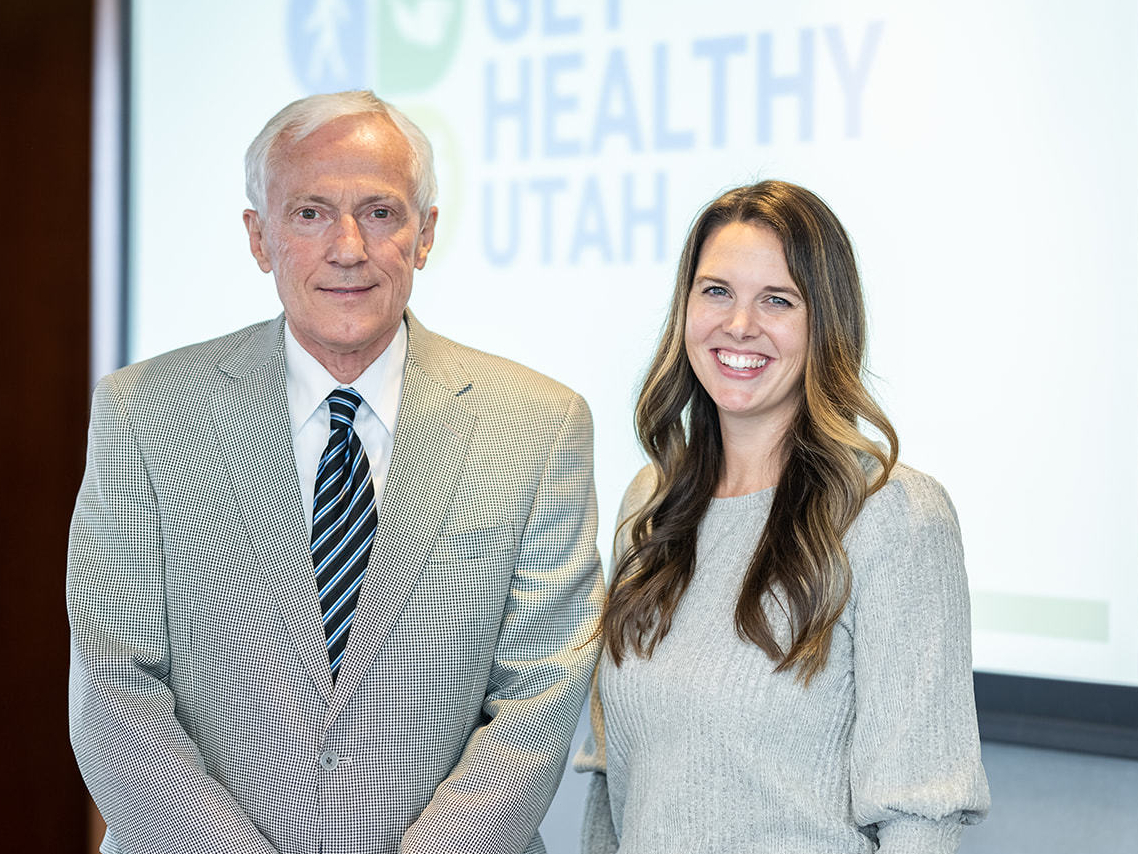The Fall 2021 Get Healthy Utah Stakeholder Retreat was held in-person on October 7th in Salt Lake City. Attendees represented various sectors that have an upstream impact on community health, such as healthcare, public health, city leadership, businesses, transportation, and education. The retreat focused on the importance of leveraging cross-sector collaboration to improve the conditions in which Utahns live, work, and play. Leaders across Utah, from all fields and specialties, have a role in promoting access to physical activity and healthy food.
GET HEALTHY UTAH HIGHLIGHTS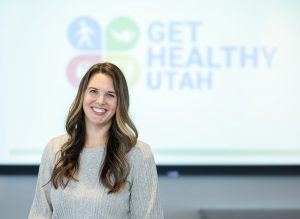
During the retreat, Alysia Ducuara, Executive Director, presented on Get Healthy Utah’s successes during the 2020-2021 fiscal year. Get Healthy Utah successfully designated 22 cities and towns a Healthy Utah Community, provided over 7,000 servings of fruits and vegetables to 22 school pantries across 4 school districts, and supported awareness of and coverage for the National Diabetes Prevention Program.
To view the presentation slide deck, click HERE.
SPEAKERS
Keynote Speaker
Dr. Elizabeth Joy, MD, MPH
Senior Medical Director for Wellness and Nutrition at Intermountain Healthcare
The 4 P’s: Leveraging Public Health Policy and Partnerships to Improve the Health of People
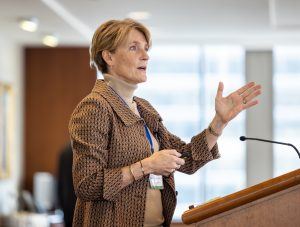 Dr. Joy presented research on the health benefits of regular physical activity. Regular exercise can increase lifespan, safeguard against cognitive decline, improve mental health, and prevent chronic disease. Regardless, most Americans are not meeting the recommended guidelines for physical activity. Through health-promoting policies and effective partnerships, much can be done to change this trend. Dr. Joy reviewed the existing public health programs that support physical activity in Utah, and recommended future directions.
Dr. Joy presented research on the health benefits of regular physical activity. Regular exercise can increase lifespan, safeguard against cognitive decline, improve mental health, and prevent chronic disease. Regardless, most Americans are not meeting the recommended guidelines for physical activity. Through health-promoting policies and effective partnerships, much can be done to change this trend. Dr. Joy reviewed the existing public health programs that support physical activity in Utah, and recommended future directions.
To view the presentation slide deck, click HERE.
Speaker
Ted Knowlton
Deputy Director for Wasatch Regional Front
Transforming Community-Driven Walking and Biking in Utah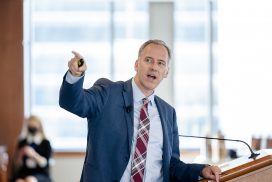
An important aspect of promoting physical activity is ensuring access to safe infrastructure. Ted Knowlton discussed the importance of building communities with safe routes to walk and bike. Research has shown that when safe biking routes are built, the rates of biking increase and citizens benefit. Biking is associated with numerous improvements in physical health, such as a reduced risk of heart disease and an improved immune system. The key to developing highly utilized infrastructure is moving forward on short-term improvements and partnering for lasting changes.
Speaker
Kate Wheeler
Child Nutrition Specialist at Utah State Board of Education
Finding Common Ground: Healthy Food Access
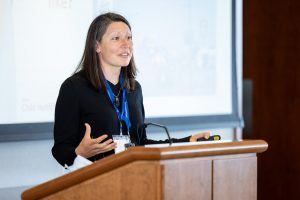 Hunger is a persistent state of poor nutrition, exacerbated by a lack of healthy food. Addressing hunger requires a two-fold approach: feeding the immediate need and addressing the causes of poor access. In her presentation, Kate Wheeler identified opportunities for long-term solutions. Such opportunities include improving transportation options, supporting local agriculture, improving access to food at schools, and incentivizing businesses to provide nutritious options.
Hunger is a persistent state of poor nutrition, exacerbated by a lack of healthy food. Addressing hunger requires a two-fold approach: feeding the immediate need and addressing the causes of poor access. In her presentation, Kate Wheeler identified opportunities for long-term solutions. Such opportunities include improving transportation options, supporting local agriculture, improving access to food at schools, and incentivizing businesses to provide nutritious options.
To view the presentation slide deck, click HERE.
CITY PANEL
In addition to the three speakers, a panel of four city leaders discussed the role that community leaders play in improving population health. Nick Jarvis, Chief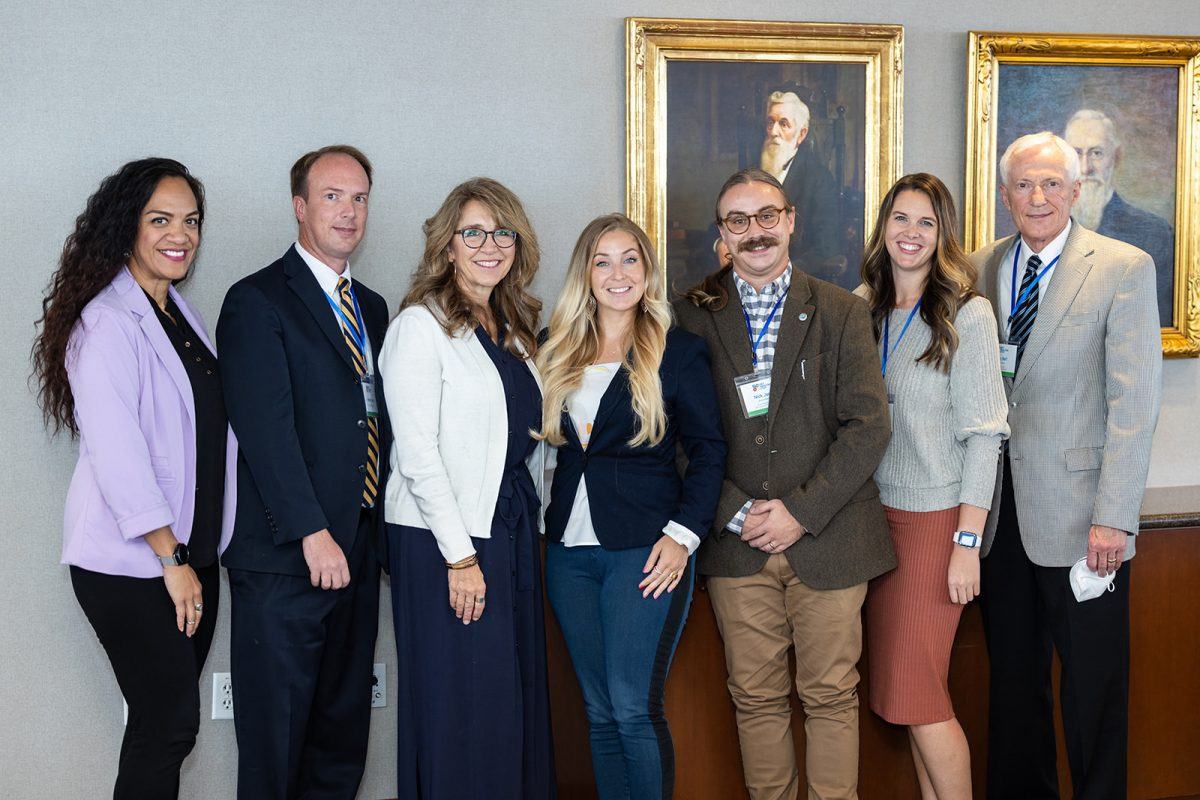 Operating Officer for the Utah League of Cities and Towns, moderated the discussion. The panel consisted of:
Operating Officer for the Utah League of Cities and Towns, moderated the discussion. The panel consisted of:
- Kelleen Potter, Mayor, Heber City
- Damon Cann, Mayor, North Logan City
- Julie Fullmer, Mayor, Vineyard City
- Bev Uipi, Councilmember, Millcreek City
Each city represented was a recipient of the Healthy Utah Community designation. The panel discussed what motivated them to pursue the designation and address community health. City leaders want their communities to be places where people desire to live, which requires providing a good quality of life. Residents appreciate opportunities to be connected, engaged, and healthy. Addressing mental health was also a high priority for panel members, as well as the importance of partnering and coordinating efforts to ensure that all health improvements made are sustainable.

